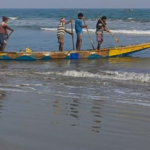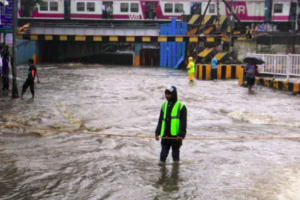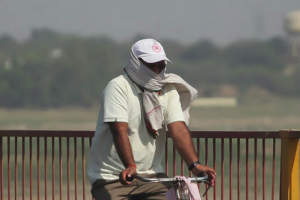
(Dr S Faizi’s response to the message issued by the Executive Secretary of the UN Convention on Biological Diversity on the International Day for Poverty Eradication (17 October).
A dissenting letter to the Secretariat of Convention on Bio Diversity from a member of Expert Group on Biodiversity for Poverty Eradication and Development (Dr. S Faizi)
To
The Executive Secretary /
The Secretariat
CBD International
413, Saint Jacques Street, suite 800
Montreal QC H2Y 1N9
Canada
Your Excellency,
I compliment you for issuing this statement. However, I am disappointed to see that the CBD COP’s output on poverty and biodiversity, namely the Chennai Guidance is not even referred to in your statement, particularly so since the 12th COP has asked the Executive Secretary to “continue the work requested by the Conference of the Parties in decisions X/6 and XI/22, for the effective integration of biodiversity for poverty eradication and development, taking into account also the related decisions of the Conference of the Parties at its twelfth meeting” and to promote the Chennai Guidance. This only reflects the Secretariat’s conventional relegation of the issues of particular concern to the developing countries.
I had been a member of the Expert Group on Biodiversity for Poverty Eradication and Development that prepared drafts of the Dehradun Declaration and the Chennai Guidance for the COP (the former was subsumed into the latter by COP 12), this all important debate happened in CBD after two decades of the treaty. And this happened quite reluctantly, and was subsequently relegated to not just the margins but to oblivion, although your predecessor Mr Braulio Dias had promised me on record that the he would provide adequate importance to the Chennai Guidance and to the issue of poverty/biodiversity in the work of the Secretariat.
As a negotiator in the INC CBD that formulated the treaty, i found several amusing things in the conduct of the Secretariat in the proceedings of the Expert Group, I take the liberty of sharing a couple of them here. There was a Secretariat document that mentioned that CBD was ‘not legally binding’, it was tragic that I was the only delegate shocked by this, but when I raised the issue the Secretariat discreetly removed that sentence without an apology, they feigned ignorant of it when the Co-Chair (India) referred to my email on the subject in his inaugural speech itself.
It was I who prepared the first draft of the Dehradun Declaration, as requested by the Secretariat (Mr Ravi Sharma) after our first round of discussion, we had focused discussion on it and a near final version was prepared when the meeting ended. But the version the secretariat sent to the COP had points we didn’t discuss or actually rejected. The reports of the proceedings also had similar additions and deletions that are procedurally unacceptable.
Some delegates have even attempted to confuse the objective of the Expert Group as something to deal with the protection of biodiversity in poverty eradication programs and projects, rather than the real objective of sustainably using biodiversity in the efforts to eradicate poverty ( I would also forewarn that this attempt to invert the objective will also happen in the case of Target 14, unless it is put in a language that doesn’t allow such a wrong interpretation.
Without meaning to dampen your enthusiasm for the anticipated adoption of the GBF at the December COP, may I respectfully submit that CBD is meant for enforcement, every article of it, and not meant for generating further documents? Nowhere does the treaty calls for the creation of a series of strategic plans. What is actually happening through these mace of documents and chain of conferences that the CBD process has been generating after the first few years of enforcement is a virtual unmaking of the hard negotiated treaty. Virtually amending a finely balanced treaty by carefully ignoring those provisions that are important for the developing countries, the GBF process is also a victim of that. Let me ask you for eg where is the substance of the all important Article 16 and its crucial subsections on access to technology in the GBF draft. The US had made it clear that they were opposed this and such provisions in the treaty, the reason why they have refused to ratify the treaty, and that is an honest position. Their western partners are also opposed to such provisions but they have ratified the treaty and succeeded in silencing those ‘difficult’ articles through Strategic Plans and by guarding the COP from performing its statutory mission of reviewing the progress in the implementation of the treaty, meaning reviewing the cases of infractions and non-compliances.
I send you all the best wishes
Respectfully

S Faizi PhD
Ecologist
Trivandrum, India
17th October 2022
(The full text of the Executive Secretary’s message can be accessed here:https://www.cbd.int/doc/speech/2022/sp-2022-10-17-poverty-en.pdf)


















